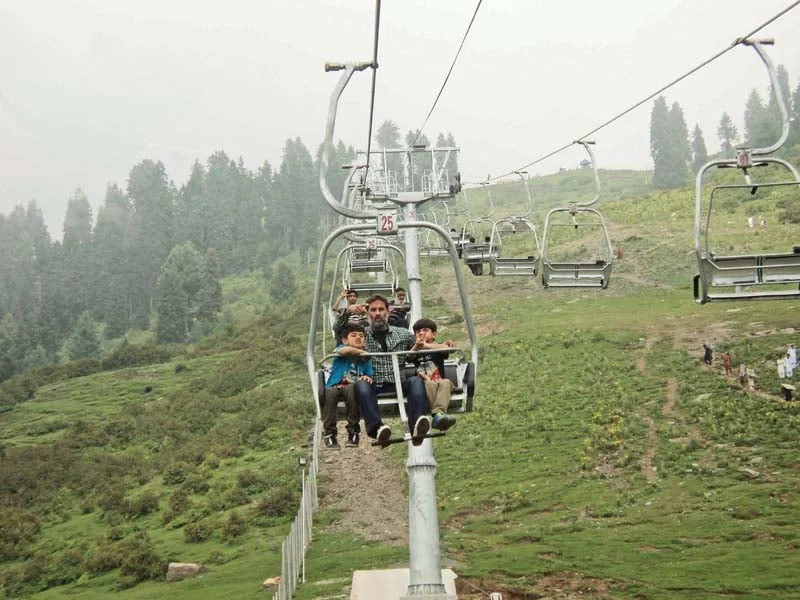In the northern reaches of Pakistan, where rugged terrain and challenging geography make conventional infrastructure impractical, the ingenious use of makeshift cable cars has emerged as a vital transportation lifeline.
These rudimentary contraptions cobbled together from discarded materials and repurposed vehicles, connect remote communities and traverse treacherous landscapes, but they also bring with them inherent dangers that underline the need for improved infrastructure.
A Daring Rescue Amidst the Skies
Just days ago, the Pakistan Army’s Special Services Group (SSG) demonstrated their prowess in a daring rescue operation. In Allai Tehsil, located within the Battagram district of Khyber Pakhtunkhwa, a cable car’s rope snapped mid-air, leaving eight individuals stranded. Through their skill and precision, the SSG managed to rescue two of the stranded individuals, highlighting the critical role that these improvised cable cars play in remote regions.
The Call of Necessity: Cable Cars Fill the Void
The employment of makeshift cable cars is most prevalent in eastern Mansehra, the Pakistan-administered Kashmir, and Gilgit-Baltistan. These areas face a unique set of challenges, including geographical isolation and limited access to basic infrastructure like schools and roads. In the absence of traditional transport solutions, local communities have turned to these makeshift cable cars, constructing them from found materials and without official approvals.
Crafting Solutions: Design and Construction
Communities in these remote regions have harnessed their creativity to craft makeshift cable cars that defy conventional design. Discarded vehicle components, including upper sections of pickup trucks and even Suzuki cars, serve as the basis for these cable cars. These improvised cabins are suspended from cables, sometimes fashioned from recycled iron, and secured using ropes. The resulting structures, though makeshift and often illegal, provide a cost-effective alternative to the otherwise expensive endeavor of building traditional infrastructure.
Balancing Risk and Benefit: A Tenuous Solution
The utilization of these cable cars comes with a share of risks. However, their benefits are equally substantial. They enable locals to traverse otherwise impassable rivers and drastically cut down travel times between mountain valleys.
For instance, in the Allai region where the recent incident unfolded, a local resident took it upon themselves to construct a cable car christened “Dolly.” This inventive solution transformed a laborious two-hour hike into a mere four-minute cable car ride. Moreover, the affordability of these cable cars, with fares often as low as 20 PKR, has established them as the preferred mode of transport for many residents.
Perils and Progress: The Safety Conundrum
While these makeshift cable cars offer an essential means of transportation, concerns about safety persist. The inherent risks were tragically underscored in 2017 when an illegal cable car crashed in Murree, Punjab, claiming the lives of 11 passengers. Similarly, in Abbottabad, Khyber Pakhtunkhwa, a cable car incident in December led to the rescue of 12 children after a rope snapped.
Government’s Eye on Safety
In the wake of these incidents, Pakistan’s interim Prime Minister has taken action. Orders have been issued for thorough safety inspections of privately operated chairlifts to ensure their secure operation. However, a lack of substantial investments in new infrastructure suggests that these makeshift cable cars will likely remain the primary mode of transport for residents in the mountainous regions.
The use of makeshift cable cars in Pakistan’s remote areas represents the remarkable ingenuity of communities striving to overcome the limitations of geography and infrastructure. While these solutions provide a lifeline to otherwise isolated communities, the inherent risks and safety concerns underscore the pressing need for sustainable, safer, and more comprehensive alternatives that can truly bridge the gap between these remote regions and the rest of the country.




